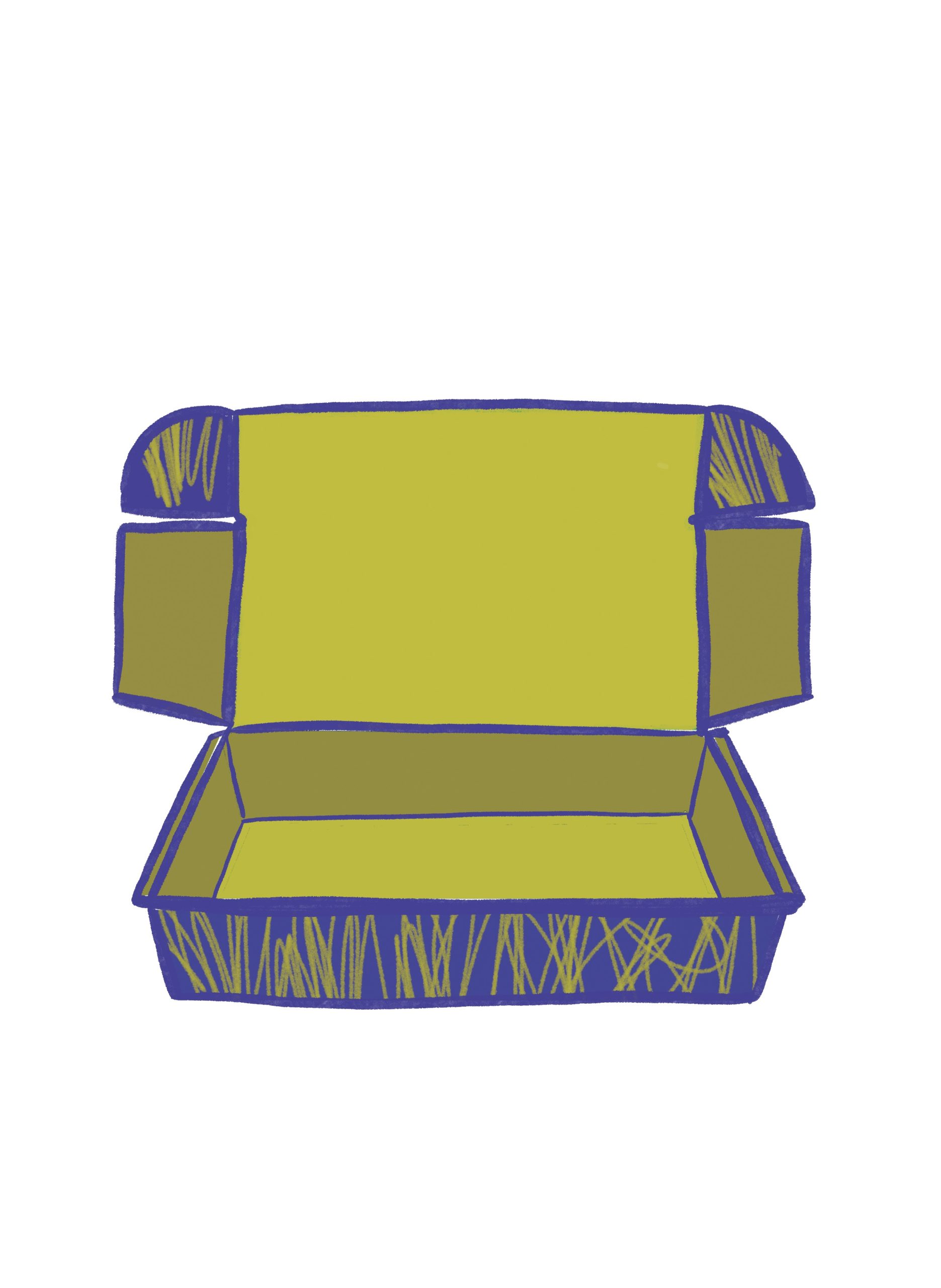Having products dropped right at our doorstep is nothing new — from the milkmen of the early 19th century to drone delivery services, humans are determined to find ways of having all they need without actually going out and getting it. Subscription boxes are the latest and most luxurious iteration of this, where once a month purchasers receive a collection of products conveniently curated to their preferences and packaged in a single box.
Like streaming services such as Netflix, a subscription to one of these boxes can go on indefinitely, though many companies offer flexible options to skip a box or only commit to a limited number of months. From exotic noodles to goodies for your pet, whatever you could want, there’s a box for it. According to Forbes, a Hitwise survey from 2018 has determined that “since 2014, the (subscription box) market has grown by 890 percent” in the United States, with continuing trends of growth through both 2017 and 2018.
For students, meal kit subscription boxes are particularly popular. Though the cost can be prohibitive, on a post from the MacEwan University Student Experience Facebook page, many students have cited Hello Fresh, Goodfood, Chef’s Plate, and other weekly meal prep subscriptions as ideal alternatives to grocery shopping. A key factor for many was the ease of mind that the boxes brought with them.
“I really love it, especially coming home at 10 p.m. to have something ready to whip up,” says Amanda Dickinson, a third-year bachelor of arts student majoring in education, who got started on a subscription for Goodfood after a friend provided a link for a free box. According to Dickinson, the boxes proved to be an economic option in terms of both effort and cost: “It seems pricey,” she says, “but you’re not buying food. Our grocery bill went down, (because) they provide everything, and it’s easy.”
Danielle Zarazun, a bachelor of commerce student in the third year of her accounting major, echoed these statements when describing her experience with the highly popular BarkBox subscription. For Zarazun, who has been regularly subscribed for the last two and a half years, “to get things for (her) dogs without going to the store,” was one of the key reasons for signing up. “The distance was annoying for a small bag of treats,” she confirms, adding that BarkBox allowed her to customize how many treats and toys she would receive, while also providing “good quality products.”
Unfortunately, with any convenience, there is always a hidden cost. For Zarazun, it’s the irregularity of her deliveries. BarkBox is based out of New York, and “they have issues getting their boxes across the border, so the timing is messy.”
For meal kit subscribers like Dickinson, common drawbacks include the amount of packaging involved and the caloric intake of meals — which can both be substantial. A less obvious consequence is how the subscription impacts the local economy.
Goodfood, which is based out of Montreal, places a huge emphasis on being a supporter of local producers. In its “Our Ingredients” section, the company website declares that “Choosing Goodfood means rediscovering the pleasure of cooking while helping support local businesses,” but what they consider to be local is a much broader definition than one would think.
Though Goodfood’s website also claims that “transparency is one of our cherished values, and that’s why there’s no mystery about the origin of our products,” a representative of the company
was unable to provide (or even, apparently, access) their list of suppliers, which they somehow still knew enough about to describe as “always updating.” By comparison, the grocery delivery service SPUD.ca has a whole page dedicated to their “Farmers and Suppliers,” almost all of whom are based in Alberta when Edmonton is set for the delivery location.
What the Goodfood representative was able to divulge, however, was that only one production facility exists in Alberta — it’s based out of Calgary — and that another is based out of Montreal. When asked whether a meal kit box ordered in Alberta would contain the same ingredients from the same suppliers as a box destined for Toronto or Halifax, the representative stated that “Some of the ingredients might be from the same supplier and go to both facilities, (but) this isn’t always the case due to transit.”
Ultimately, what this means is that Goodfood’s goal of “encouraging our economy” may function on a national level, but it does not translate to a provincial or local economic boost. Boxes purchased in Edmonton may be supplied with ingredients from only eastern Canada, even though those same ingredients could easily have been sourced right here at home. In some cases this makes sense — one would probably prefer that any seafood come from coastal provinces, for instance — but by and large, it seems that meal kit boxes run the risk of taking business away from local producers, rather than providing them with more.
For Daphne Simkin, one half of the duo behind YEGBox — Edmonton’s own subscription box service — supporting local businesses isn’t just a buzzword. It’s their entire business model. Ac- cording to the YEGBox website, for every $20 spent in the community, an impact of almost five times that amount ($109) is what’s felt by the local economy.
“If you’re buying say, something from Amazon, that money will never ever return back to your community.”
— Daphne Simkin, co-founder of YEGBox
“If you support a local business, that business, in turn, goes around to supporting local, whether it’s sport or charities, or whatever,” Simkin explains. “They actually feed money back into your community, whereas if you’re buying say, something from Amazon, that money will never ever return back to your community.”
This philosophy informs every aspect of the YEGBox service. “If you take a look at just one of our boxes, it’s filled with a minimum of five different products. (Those products) are produced within Edmonton, but most of the providers buy their products, their actual ingredients, within Edmonton as well,” Simkin notes, adding, “so the spin-off just keeps multiplying, because it’s local businesses supporting local businesses, supporting local businesses.”
According to Simkin, even the packaging is taken into consideration. “We only use 100 per cent local, right down to our packaging,” she says.
“Before product even goes into (the box), it has already (supported) purchases from three different local companies. The tissue paper that goes in we get from one company, the fill we get from another, and the company that produces the box is a third. Our box itself is produced just outside of Edmonton.”
The YEGBox subscription service has been running since 2017 and in addition to monthly boxes, also provides special limited edition boxes and corporate orders. On average, Simkin says they deliver 160 monthly boxes, but depending on the season, can ship an additional 300 to 1,000 corporate boxes on top of that. The non-corporate boxes range in price from $25 to $85 and are generally sold at cost. If we go back to Simkin’s equation, 160 boxes at a median cost of $55 contribute $47,960 a month back into Edmonton’s economy.
On top of that, Simkin and her business partner routinely turn over any profit they do make back to Edmonton charities. “When we started the company we wanted it to be more about bringing an awareness to some of the great local businesses that Edmonton has. It’s really quite difficult within Alberta, and pretty much all of Canada, to run a local subscription box because of the shipping costs. The crate cost alone on a box of that size is roughly $15 within the city and $20 outside of the city. You can’t really run a profit margin on it, so I always tell people we’re mostly doing it for the love of.”
For Simkin, the contents of each YEGBox are but a sample of all that is available to conscientious consumers who want to make their purchases as local as possible. “The idea is that if you buy something if you get a box and you love the stuff, it’s very transparent where those products come from. If you love it, you don’t come back to me, you go directly to them, (because what’s in the box) is one of their maybe 15 to 100 products.”
While the contents of each monthly box is kept a secret, Simkin makes good on her claim of transparency. The YEGBox website provides photos and descriptions of each special edition box, so purchasers can confirm just how local those contents are. Past boxes have included products from Duchess Bakeshop, Meuwleys, Jacek, Tiny Treats Soap Co., Velvet Crane, and Bro Brick, all of which are indeed, based in Edmonton.
Ironically, sometimes you have to think outside the box when it comes to supporting local. It generally involves research, going to a particular store or place within the city, and all too often it means paying more. For many students, this simply isn’t an option in every aspect of their lives — convenience and affordability understandably come first— but as Simkin’s equation suggests, even small forms of support go a long way.





0 Comments